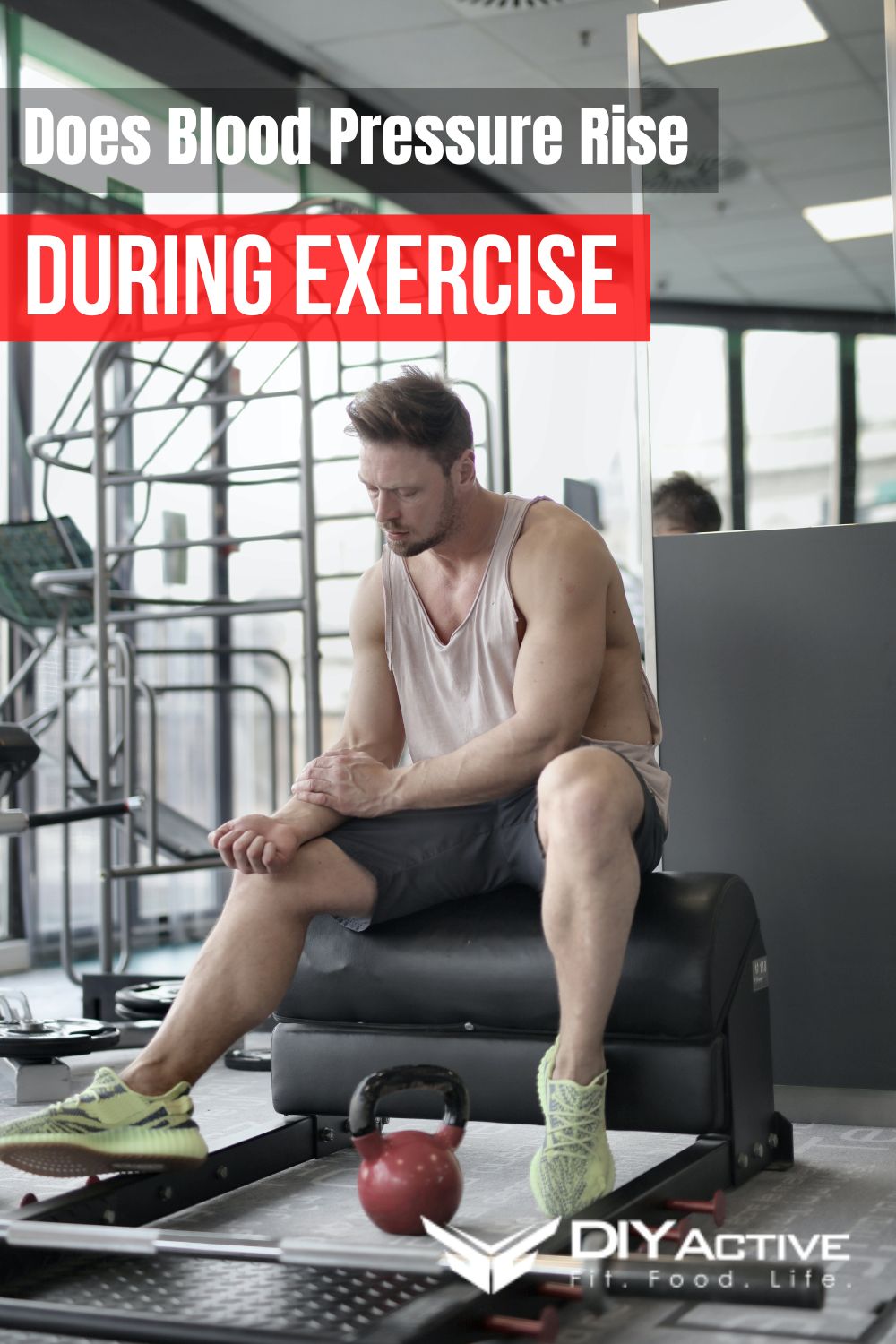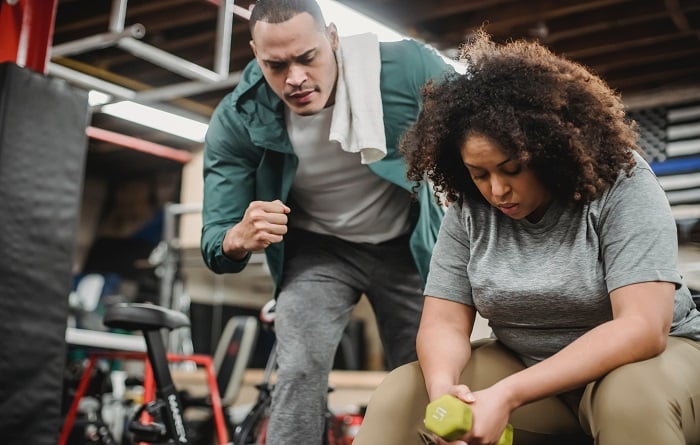Products You May Like

As we’ve covered before on this site, there are many health issues related to having high blood pressure. Your risk for heart attack, stroke, organ failure, sexual dysfunction, and even vision loss increases if you let high blood pressure go unchecked long enough.
Should We Be Concerned About This?
Luckily, many forms of exercise can be used to reduce your blood pressure over time, by strengthening your heart muscle and contributing to fat loss.
However, you may have noticed that during a workout, your heart rate can increase substantially in relation to effort. Since your heart “working overtime” is something commonly seen with high blood pressure, does that mean your blood pressure goes up when you exercise? And should we be concerned about this?
How Your Body Responds to Exercise
When you exercise, a number of things occur across various bodily systems. Doing more work with your body requires more oxygen, leading to an increase in respiration (breathing) rate. Working muscles require fuel in the form of nutrition, which is delivered by the circulatory system.
Your heart rate increases to create a higher amount of blood flow to the working muscles. And your body temperature rises in response to physical work, prompting your glandular system to release sweat and cool the skin.
The body’s response to exercise is fascinating and complex, but on its face, some of these effects might actually seem harmful. And it’s true that a chronically elevated heart rate, respiratory rate, and body temperature can be signs of bad things in the body.
So, you may be wondering, does your blood pressure also go up when you exercise?
Blood Pressure and Exercise
The short answer: yes, blood pressure does increase during exercise.
A normal response to exercise is for blood pressure to increase to deliver oxygen-rich blood to the muscles, with systolic values all the way up to 200 mmHg considered an “expected” rise in blood pressure.
This is another normal acute response to physical work that goes hand in hand with an increased heart rate and a higher blood flow. After all, blood pressure is literally a measurement of the pressure in the arteries as the heart pumps blood, so if the heart is pumping harder, it’s easy to see how that creates more pressure.
But if you’ve read up on the effects of exercise on blood pressure, you’ve likely seen studies showing a reduction in blood pressure in the long term as a result of routine exercise. So how do we explain this difference?
Acute vs Chronic Adaptations
Your body adapts to exercise in the short term and the long term in very different (often completely opposite) ways. For instance, you may be weight training in order to build muscle, but you may be surprised to find out that during a workout itself, enzymes are activated that assist in the breakdown of muscle and temporarily blunt the ability to build new muscle.
What gives?
In this weight training example, these enzymes assist in fueling the workout itself, but once training is complete, there’s no more need for that extra energy availability.
In the time between workouts, a different recovery process is put in motion to allow you to be better able to handle the stress of that workout, with the main results being increased muscle mass and strength.
You can think of this difference in acute vs chronic adaptations to training as a roller coaster with peaks and valleys. When you implement any form of training, your desired outcomes are the peaks. These desired peaks are better performance specific to the type of exercise, and increased parameters of health, like lower resting heart rate and (especially) lower blood pressure.
To get to those peaks in the first place, the stress of training itself takes you down into the valleys, which often acutely makes those measures of your desired outcomes look worse.
Fill Up the GAS
Think about it: if you’re using a swimming program to improve your lap times and health, you’ll actually get further away from those outcomes as you train. The more laps you swim, the more fatigue you accumulate, and the slower those laps will be. As the session goes on, you’ll also increase your heart rate and blood pressure.
But in the long term, your body adapts to better handle that same stress. It’s no surprise then, that a properly structured program will eventually lead to better lap times, lower resting heart rate, and lower resting blood pressure.
This cycle, stress -> adaptation -> enhancement, is known as General Adaptation Syndrome (or GAS). This is essentially the cycle your body uses to adapt to pretty much any stress imposed on it, good or bad.
Exercise is good stress, which leads to adaptations that can temporarily be seen as “worrisome,” but you won’t see any enhancement of any of these parameters on the back end without it.
I suppose you can consider these temporary effects a “necessary evil” on the road to long-term benefits.
When Elevated Blood Pressure During Exercise Can Be Dangerous
We’ve already answered the question “does your blood pressure go up when you exercise?” For the vast majority of people, the answer is yes, and it’s also nothing to worry about since this effect is temporary and leads to better blood pressure levels in the future.
However, some people have been shown to experience a “Hypertensive Response to Exercise” (HRE), which is a dramatic spike in blood pressure during exercise. Instead of an acceptable level of about 200 mmHg in systolic pressure, it can rise all the way up to 250 mmHg and beyond. This aggressive spike can put you at serious risk for adverse health effects.
The exact causes are still unknown, and it can even affect people who have a resting blood pressure level in the acceptable range. But research has indicated that arterial stiffness and metabolic irregularity contribute to this effect.
If you’ve felt effects associated with high blood pressure (severe headaches, confusion, vision problems, fatigue, chest pain, etc.) during exercise, or are known to have existing issues with your arteries or metabolism, seek a doctor’s assistance in determining a course of treatment and recommendations on how to safely implement exercise into your life.
Photo by Andrea Piacquadio
Photo by Julia Larson

